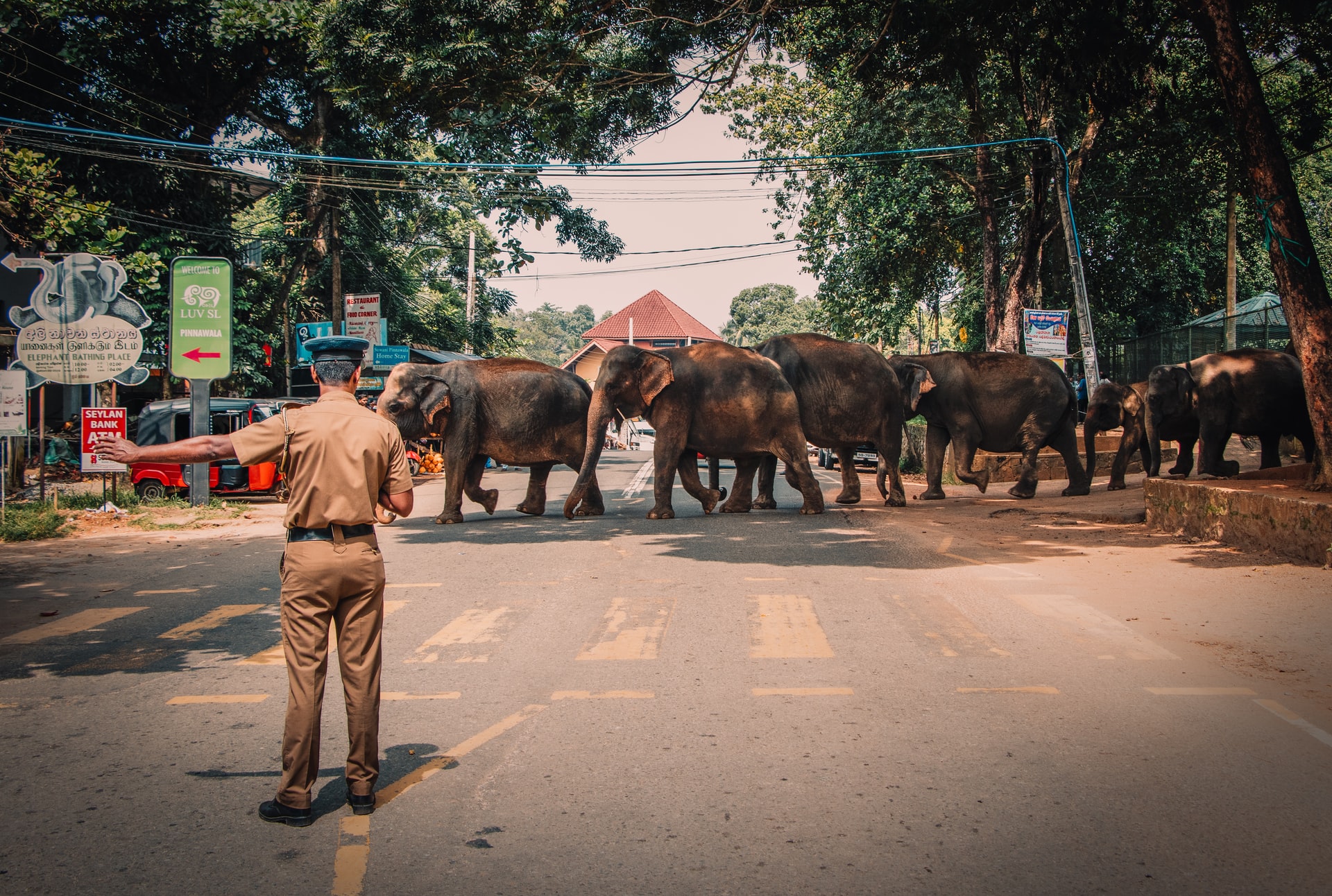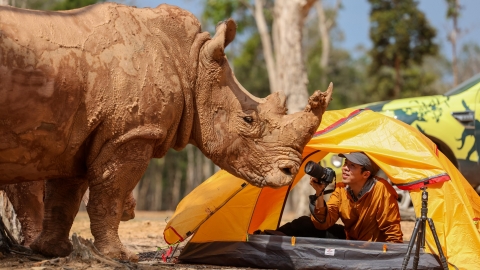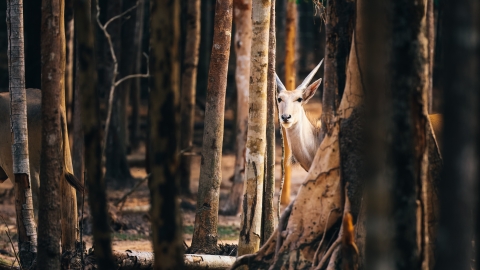On August 26th, Sri Lanka enacted new regulations stating that elephants used in the logging industry can only work a maximum of four hours a day and cannot work at night. They must also be bathed for at least two and a half hours a day and given mud baths to cool down. Violators could face up to three years in prison and the return of all their elephants to state control.
According to this law, baby elephants under two years old in Sri Lanka are not allowed to be forced to work and must be raised with their mothers. Furthermore, elephant trainers (mahouts) are not permitted to drink alcohol or use drugs while working with elephants.
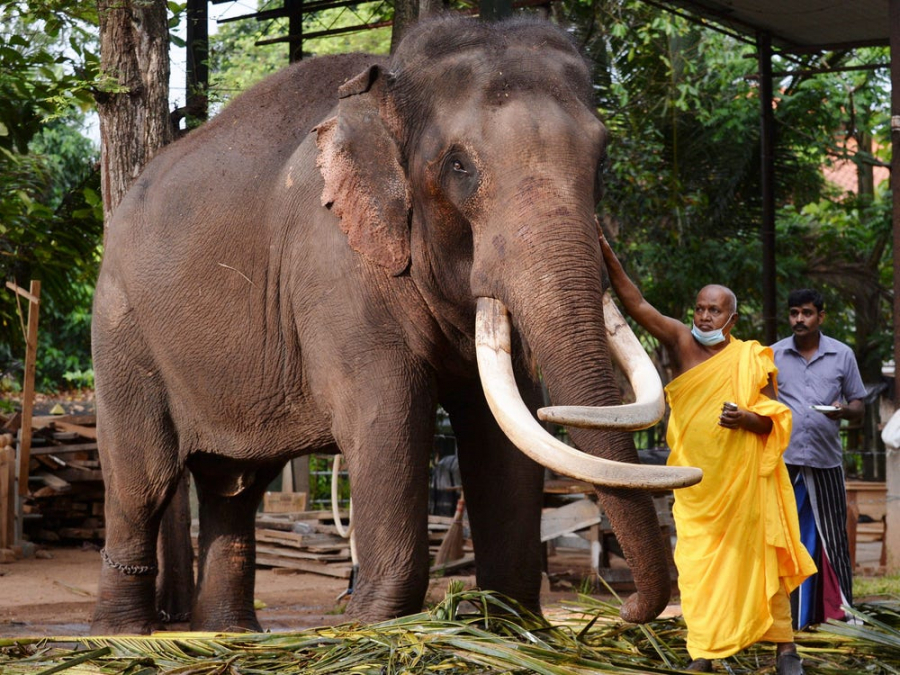
A monk anoints an elephant during a traditional New Year's ceremony at a temple in Colombo, Sri Lanka, on April 17, 2021. (Photo: Getty Images)
This regulation was introduced by Wimalaweera Dissanayaka, Sri Lanka's Minister of Wildlife Protection, who also stated that each domesticated elephant must have a biometric "identity card" containing its own photo and DNA information. Furthermore, a maximum of four people are allowed to ride an elephant at a time, and these individuals must sit on a well-padded saddle. Captive elephants must undergo mandatory health checks every six months, and they cannot be forced to participate in filming, except for government-sponsored media productions, and must be strictly supervised by an authorized veterinary facility.
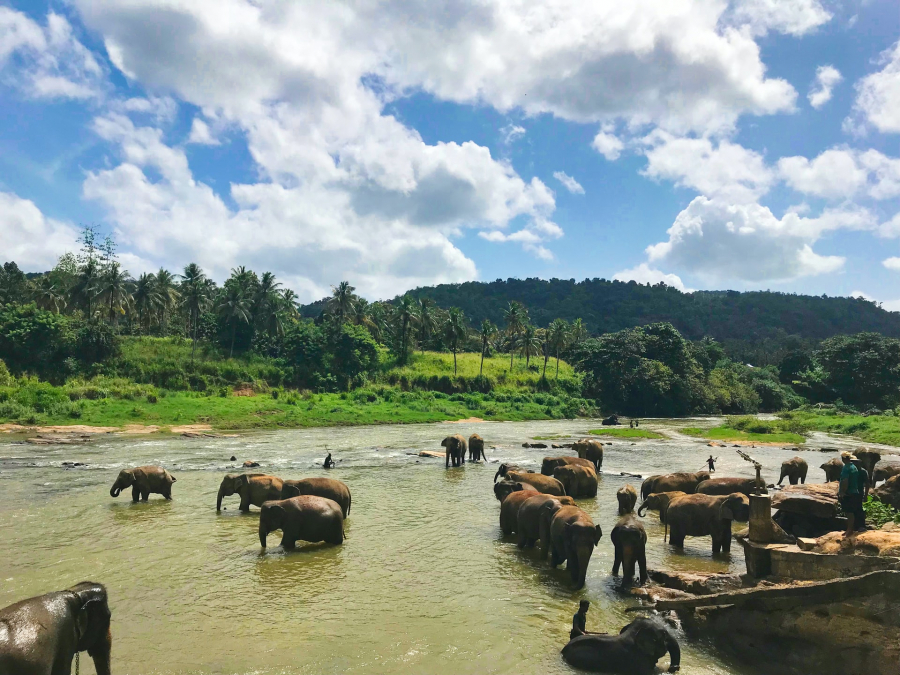
Elephants on the river in Pinnawala village (Sri Lanka) - Photo: Rajiv Perera
Elephants are highly beloved and revered in the island nation of Sri Lanka. In this country, killing an elephant can result in the death penalty. Elephants are often used in religious processions, tourism, and the logging industry.

 VI
VI EN
EN




